In the rapidly evolving world of electric vehicles, two contenders are vying for attention in the compact SUV segment: the Renault Mégane and the Skoda Elroq. Both models are innovative in their design and technology, but they cater to slightly different needs and preferences. This comparison delves into their technical specifications and unique features, offering insights for potential buyers.
Renault Mégane vs Skoda Elroq - Differences and prices compared
Compare performance (218 HP vs 340 HP), boot space and price (35100 £ vs 29100 £ ) at a glance. Find out which car is the better choice for you – Renault Mégane or Skoda Elroq?
Design and Dimensions
When it comes to exterior dimensions, the Skoda Elroq is larger than the Renault Mégane. The Elroq measures 4488 mm in length, 1884 mm in width, and stands at 1625 mm tall. In contrast, the Mégane is more compact at 4200 mm long, 1768 mm wide, and 1505 mm high. This size difference translates into a more spacious cabin and cargo area in the Elroq, which boasts a trunk capacity of 470 liters compared to Mégane’s 389 liters.
Powertrains and Performance
Under the hood, both vehicles feature electric powertrains, but their output and performance characteristics set them apart. The Mégane is available with two power options ranging from 130 HP to 218 HP, generating torque figures of 250 Nm and 300 Nm, respectively. Acceleration times from 0-100 km/h vary, with the quickest version achieving this in just 7.4 seconds. The Mégane has a top speed of 150 km/h.
The Skoda Elroq, on the other hand, raises the performance stakes with a choice of powertrains offering 170 HP and an impressive 285 HP. Torque figures peak at 310 Nm and soar to a staggering 545 Nm for the more powerful version, allowing the Elroq to sprint from 0-100 km/h in as little as 6.6 seconds and reach a maximum speed of 180 km/h.
Range and Efficiency
Range is a critical consideration for electric vehicle buyers, and here, the Elroq once again pulls ahead. With an electric range of up to 580 km, the Skoda allows for longer journeys between charges. The Mégane, while competitive, offers a maximum range of 460 km. Both cars are designed with efficiency in mind, but the Mégane shows a slightly better energy consumption figure of up to 15.2 kWh/100 km compared to the Elroq’s 15.8 kWh/100 km.
Interior and Features
Inside, both the Mégane and Elroq offer comfortable seating for five, but the Skoda's larger dimensions provide a more spacious feel. The interior of the Elroq is designed to maximize both comfort and user experience, equipped with modern infotainment systems and advanced driver assistance features. The Mégane, while slightly smaller, offers a user-friendly layout and a suite of digital features that cater to tech-savvy users.
Eco-Friendliness and Sustainability
Both vehicles maintain a CO2 efficiency class of A, underscoring their commitment to sustainable mobility. With zero emissions while driving (0 g/km CO2), they contribute significantly to reducing urban air pollution. Additionally, both manufacturers have implemented eco-friendly production processes, emphasizing the importance of sustainability in their manufacturing ethos.
Conclusion: Which to Choose?
Choosing between the Renault Mégane and Skoda Elroq ultimately depends on your priorities. If you prefer a nimble vehicle with a slightly better energy consumption rating and sufficient range for daily commutes, the Mégane might be the ideal choice. However, if you're looking for performance, spaciousness, and longer range capabilities, the Elroq stands out as a formidable contender. Both models represent remarkable advancements in electric mobility, each offering unique benefits that cater to different lifestyles.
Video - Skoda Elroq
Here’s where it gets real: The technical differences in detail
Costs and Efficiency:
Looking at overall running costs, both models reveal some interesting differences in everyday economy.
Skoda Elroq has a clearly perceptible advantage in terms of price – it starts at 29100 £ , while the Renault Mégane costs 35100 £ . That’s a price difference of around 6000 £.
In terms of energy consumption, the advantage goes to the Skoda Elroq: with 15.20 kWh per 100 km, it’s slight more efficient than the Renault Mégane with 15.40 kWh. That’s a difference of about 0.20 kWh.
As for electric range, the Skoda Elroq performs evident better – achieving up to 573 km, about 121 km more than the Renault Mégane.
Engine and Performance:
Power, torque and acceleration are the classic benchmarks for car enthusiasts – and here, some clear differences start to show.
When it comes to engine power, the Skoda Elroq has a evident edge – offering 340 HP compared to 218 HP. That’s roughly 122 HP more horsepower.
In acceleration from 0 to 100 km/h, the Skoda Elroq is noticeable quicker – completing the sprint in 5.40 s, while the Renault Mégane takes 7.40 s. That’s about 2 s faster.
In terms of top speed, the Skoda Elroq performs slightly better – reaching 180 km/h, while the Renault Mégane tops out at 160 km/h. The difference is around 20 km/h.
There’s also a difference in torque: Skoda Elroq pulls decisively stronger with 679 Nm compared to 300 Nm. That’s about 379 Nm difference.
Space and Everyday Use:
Beyond pure performance, interior space and usability matter most in daily life. This is where you see which car is more practical and versatile.
Both vehicles offer seating for 5 people.
In curb weight, Renault Mégane is to a small extent lighter – 1719 kg compared to 1953 kg. The difference is around 234 kg.
In terms of boot space, the Skoda Elroq offers a bit more room – 470 L compared to 389 L. That’s a difference of about 81 L.
In maximum load capacity, the Skoda Elroq performs slightly better – up to 1580 L, which is about 248 L more than the Renault Mégane.
When it comes to payload, Skoda Elroq to a small extent takes the win – 531 kg compared to 446 kg. That’s a difference of about 85 kg.
Who wins the race in the data check?
The Skoda Elroq sits well ahead of its rival in the objective data comparison.
This result only shows which model scores more points on paper – not which of the two cars feels right for you.
Costs and Consumption
View detailed analysis
Engine and Performance
View detailed analysis
Dimensions and Body
View detailed analysis
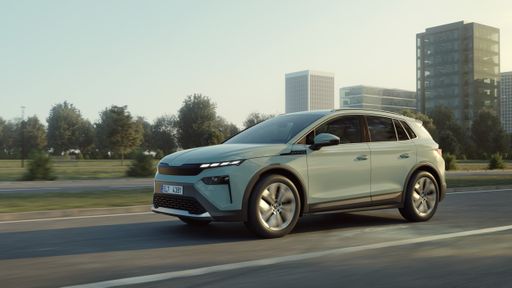
Skoda Elroq
Renault Mégane
The Renault Mégane blends Gallic flair with practical everyday charm, showing that sensible transport can still have personality and poise. It’s a smart pick for buyers who want a comfortable, stylish hatchback that feels a little more special than the usual commute companion.
details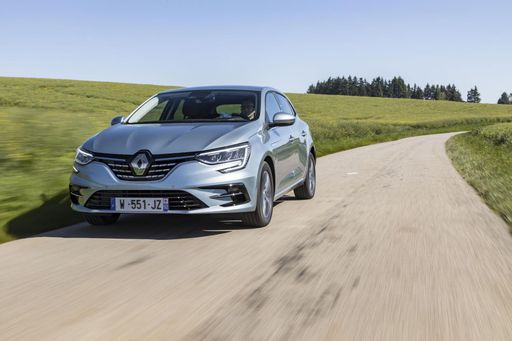
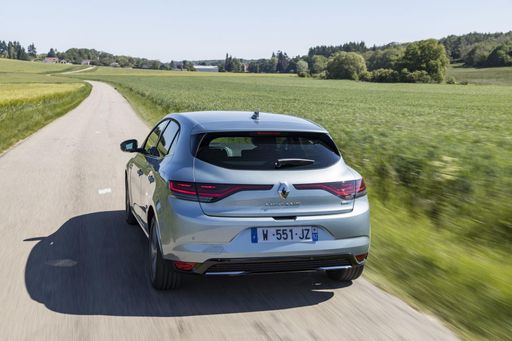
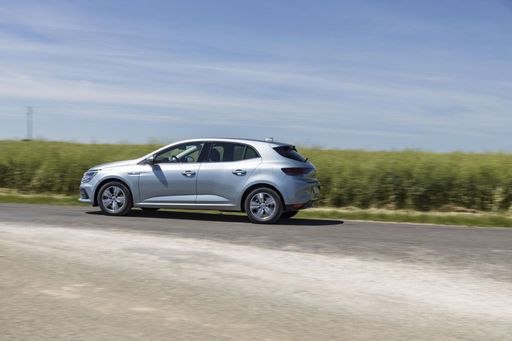
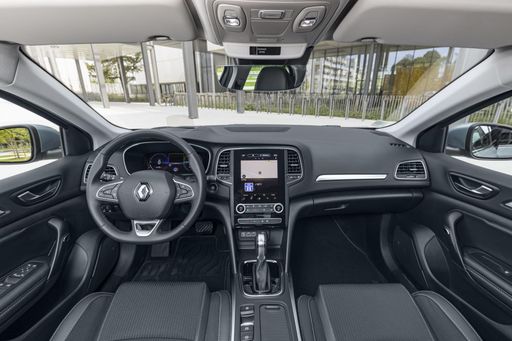
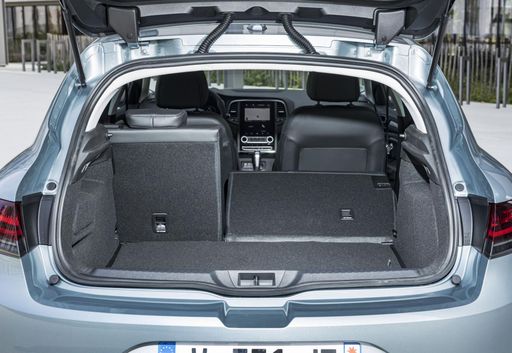
Skoda Elroq
The Skoda Elroq is a cleverly packaged family SUV that mixes roomy practicality with sharp, modern looks, making it an easy pick for buyers who prefer common sense over flash. On the road it's composed and user-friendly, with thoughtful interior details that turn everyday driving into something pleasantly efficient — a sensible companion with a wink.
details
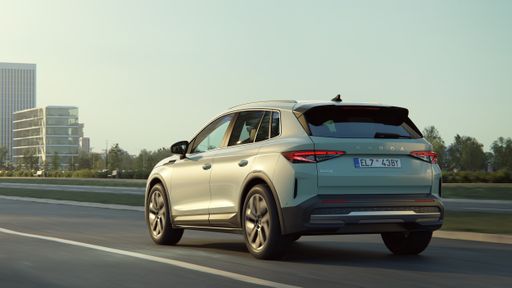
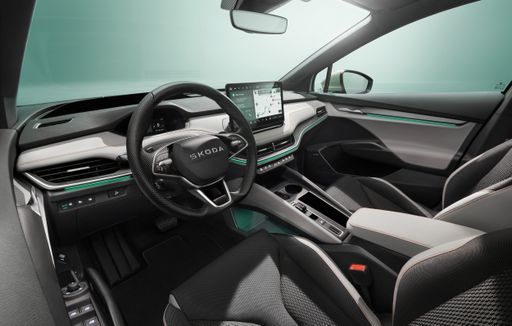
Costs and Consumption |
|
|---|---|
|
Price
35100 - 38500 £
|
Price
29100 - 45500 £
|
|
Consumption L/100km
-
|
Consumption L/100km
-
|
|
Consumption kWh/100km
15.40 kWh
|
Consumption kWh/100km
15.2 - 16.5 kWh
|
|
Electric Range
452 km
|
Electric Range
377 - 573 km
|
|
Battery Capacity
-
|
Battery Capacity
52 - 79 kWh
|
|
co2
0 g/km
|
co2
0 g/km
|
|
Fuel tank capacity
-
|
Fuel tank capacity
-
|
Dimensions and Body |
|
|---|---|
|
Body Type
SUV
|
Body Type
SUV
|
|
Seats
5
|
Seats
5
|
|
Doors
5
|
Doors
5
|
|
Curb weight
1719 kg
|
Curb weight
1953 - 2268 kg
|
|
Trunk capacity
389 L
|
Trunk capacity
470 L
|
|
Length
4200 mm
|
Length
4488 mm
|
|
Width
1783 mm
|
Width
1884 mm
|
|
Height
1505 mm
|
Height
1608 - 1625 mm
|
|
Max trunk capacity
1332 L
|
Max trunk capacity
1580 L
|
|
Payload
446 kg
|
Payload
470 - 531 kg
|
Engine and Performance |
|
|---|---|
|
Engine Type
Electric
|
Engine Type
Electric
|
|
Transmission
Automatic
|
Transmission
Automatic
|
|
Transmission Detail
Reduction Gearbox
|
Transmission Detail
Reduction Gearbox
|
|
Drive Type
Front-Wheel Drive
|
Drive Type
Rear-Wheel Drive, All-Wheel Drive
|
|
Power HP
218 HP
|
Power HP
170 - 340 HP
|
|
Acceleration 0-100km/h
7.40 s
|
Acceleration 0-100km/h
5.4 - 9 s
|
|
Max Speed
160 km/h
|
Max Speed
160 - 180 km/h
|
|
Torque
300 Nm
|
Torque
310 - 679 Nm
|
|
Number of Cylinders
-
|
Number of Cylinders
-
|
|
Power kW
160 kW
|
Power kW
125 - 250 kW
|
|
Engine capacity
-
|
Engine capacity
-
|
General |
|
|---|---|
|
Model Year
2025
|
Model Year
2025
|
|
CO2 Efficiency Class
A
|
CO2 Efficiency Class
A
|
|
Brand
Renault
|
Brand
Skoda
|
What drive types are available for the Renault Mégane?
Available configurations include Front-Wheel Drive.
